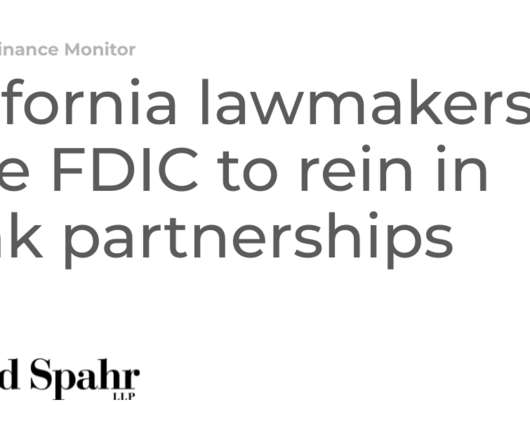10 Top Banking Podcasts You Should be Listening to
Abrigo
MAY 5, 2022
Breaking Banks Breaking Banks , billed as the #1 global fintech podcast and radio show, began in 2013 and is hosted by media firm Provoke.fm. Weekly episodes highlight innovators and industry players driving innovation in the financial services industry. keep me informed.














Let's personalize your content